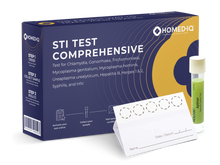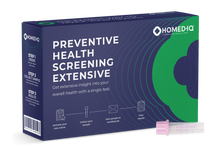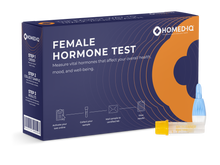How stress can affect your gut microbiome
Do you often feel unwell or experience digestive issues during stressful times?
Scientific studies show that stress can significantly affect the gut microbiome—the community of microorganisms in your gut (Beurel, 2024). When this delicate balance is disrupted, it can impact not only your digestion but also your immune system and overall well-being. But how exactly does stress influence your gut microbiome, and what can you do about it? This article explains the connections and how you can actively support your gut health.
Table of Contents
- Terms: gut microbiome and gut microbiota
- Stress: what happens in the body?
- Short-term vs. long-term stress – is the effect always present?
- Mechanisms: how does stress affect the gut microbiome?
- Consequences: what happens when the gut microbiome is out of balance?
- How can I protect my gut microbiome?
- Summary
Terms: gut microbiome and gut microbiota
The terms “gut microbiome” and “gut microbiota” are often used interchangeably, but they have different meanings:
-
Gut microbiota refers specifically to the community of all microorganisms that inhabit the gut. This includes bacteria, viruses, and fungi that interact in a complex ecosystem.
-
Gut microbiome encompasses not only the microbiota but also their genetic material and the metabolic products they produce.
Since stress especially influences the composition and activity of bacteria, this blog focuses mainly on these microorganisms. However, for the sake of readability, the term “gut microbiome” will be used, even though the described effects primarily concern bacteria (Hou et al., 2022).
Functions of the gut microbiome
A healthy gut microbiome performs numerous important tasks in the body:
✔ Digestion – Assists in breaking down food and absorbing nutrients
✔ Metabolism – Produces vitamins (e.g., B vitamins, vitamin K) and short-chain fatty acids essential for gut health
✔ Immune system – Trains the immune system and protects against pathogens
✔ Gut barrier – Supports the intestinal mucosa and prevents harmful substances from entering
✔ Gut-brain axis – Influences mood and the nervous system through the production of neurotransmitters such as serotonin
Because stress can disrupt the balance of the gut microbiome, many bodily functions may be impaired (Jandhyala et al., 2015).
Stress: what happens in the body?
Stress is a natural response of the body to challenges. In acute situations, it increases heart rate, improves blood flow to the muscles, and ensures rapid energy supply—a survival mechanism from earlier times.
It becomes problematic when stress becomes chronic. In that case, the body remains in a constant state of alert, and there is a sustained release of stress hormones such as cortisol and adrenaline. Over time, this can lead to digestive issues, sleep disorders, weakened immune function, and inflammation (WHO, 2023).
Short-term vs. long-term stress – is the effect always present?
Not all stress has an immediate negative impact on the gut microbiome. Short-term stress, such as a stressful workweek or an exam situation, can temporarily change the gut flora. These changes are usually reversible once stress levels normalize.
It becomes problematic when stress persists long-term. Chronic stress can:
✔ Permanently reduce gut bacterial diversity
✔ Cause long-term damage to the gut barrier (leaky gut)
✔ Promote inflammation that may lead to serious diseases
Studies show that the gut microbiome often recovers quickly after short-term stress, whereas chronic stress can lead to lasting changes (e.g., reduced bacterial diversity) and is associated with conditions like irritable bowel syndrome or mental health disorders (Beurel, 2024).
The good news: A healthy lifestyle can help minimize the impact of stress on the gut microbiome and restore balance (Matute & Iyavoo, 2023).
Mechanisms: how does stress affect the gut microbiome?
Chronic stress can significantly disrupt the balance of gut bacteria. It alters their composition, which in turn affects several mechanisms in the body:
Stress hormones alter the composition of gut bacteria
Under stress, the body releases increased amounts of cortisol and adrenaline. These stress hormones influence the growth and diversity of gut bacteria by inhibiting the reproduction of beneficial bacteria while promoting harmful ones. As a result, the natural balance in the gut may be disturbed. Studies show that chronic stress is associated with a reduction in gut bacterial diversity and an increase in pro-inflammatory bacteria (Geng et al., 2020).
Stress weakens the gut barrier
The intestinal wall forms a protective layer that prevents harmful substances or pathogens from entering the bloodstream. Stress can weaken this gut barrier by reducing the production of protective mucus and loosening the connections between intestinal cells. This leads to a condition known as “leaky gut.” A weakened gut barrier allows unwanted bacterial components to enter the body and trigger inflammatory responses (Madison & Bailey, 2024).
Stress promotes inflammatory processes
Chronic stress disrupts the immune system and promotes the release of pro-inflammatory messengers (cytokines). These inflammatory responses can hinder the growth of beneficial bacteria while allowing pro-inflammatory bacteria to spread. A persistently inflamed state in the gut is associated with a wide range of diseases (Warren et al., 2024).
Consequences: what happens when the gut microbiome is out of balance?
Stress-induced dysbiosis can impair many bodily functions, since the gut microbiome is closely linked to digestion, the immune system, and even mental health. The most common consequences include:
1. Digestive issues
When the balance of gut bacteria changes, this can lead to bloating, diarrhea, or constipation. Many individuals also report recurring abdominal pain and discomfort.
A disrupted gut microbiome is often linked to irritable bowel syndrome (IBS), a functional gastrointestinal disorder that causes chronic digestive issues such as pain, bloating, and altered bowel habits (Guo et al., 2022).
2. Weakened immune system
About 70% of the immune cells are located in the gut. Gut bacteria play a central role in defending against pathogens and regulating the immune system.
When the gut microbiome is disrupted, the immune system's defense mechanisms may weaken. This increases the risk of infections, allergies, and even autoimmune diseases, in which the immune system mistakenly attacks the body’s own tissues (Levy, 2017).
3. Mental health effects
The gut and brain are connected via the gut-brain axis. Gut bacteria produce important neurotransmitters such as serotonin (“the happiness hormone”) and GABA, both essential for mood and relaxation.
Dysbiosis can interfere with the production of these neurotransmitters, increasing the risk of anxiety, depression, and sleep disturbances (Liu, 2023).
4. Increased inflammation in the body
A healthy gut barrier ensures that only nutrients and vital substances enter the body. When this protective layer is weakened, harmful substances can leak into the bloodstream and trigger inflammation—a condition known as “leaky gut” (Quin et al., 2023).
Chronic inflammation is associated with various diseases, including:
✔ Crohn’s disease & ulcerative colitis – Chronic inflammatory bowel diseases with symptoms like diarrhea, abdominal pain, and weight loss
✔ Cardiovascular diseases – Inflammatory processes can promote high blood pressure and atherosclerosis
5. Impact on metabolism and weight
Certain gut bacteria regulate hunger and satiety. Dysbiosis can impair this regulation, leading to cravings, increased appetite, and a preference for sugary foods. Long-term changes in the gut microbiome are associated with obesity and insulin resistance, increasing the risk of type 2 diabetes (Menafra et al., 2024).
How can I protect my gut microbiome?
A healthy gut microbiome is essential for your overall well-being. With mindful lifestyle choices, you can positively influence it:
✔ Eat a fiber-rich diet – Whole grains, legumes, fruits, and vegetables support the growth of beneficial gut bacteria.
✔ Probiotics & fermented foods – Yogurt, sauerkraut, and kefir contain live bacteria that strengthen the gut flora.
✔ Include prebiotics in your diet – Garlic, onions, and chicory root provide nourishment for beneficial gut bacteria.
✔ Reduce stress – Meditation, exercise, and adequate sleep help maintain the balance of gut bacteria.
✔ Stay well hydrated – Drinking enough water supports digestion and promotes healthy gut function.
✔ Use antibiotics only when necessary – These medications destroy not only harmful but also beneficial bacteria.
✔ Incorporate movement into daily life – Physical activity promotes intestinal activity and microbial diversity.
A healthy lifestyle helps keep your gut microbiome in balance and counteracts stress-related damage (Cleveland Clinic, 2023).
Summary
Stress can disrupt the balance of the gut microbiome and cause dysbiosis, which affects digestion, the immune system, and mental health. Chronic stress promotes inflammation, weakens the gut barrier, and can lead to various long-term illnesses. A microbiome test can help detect imbalances at an early stage. With a healthy diet, stress reduction, and regular physical activity, you can actively support your gut health.









